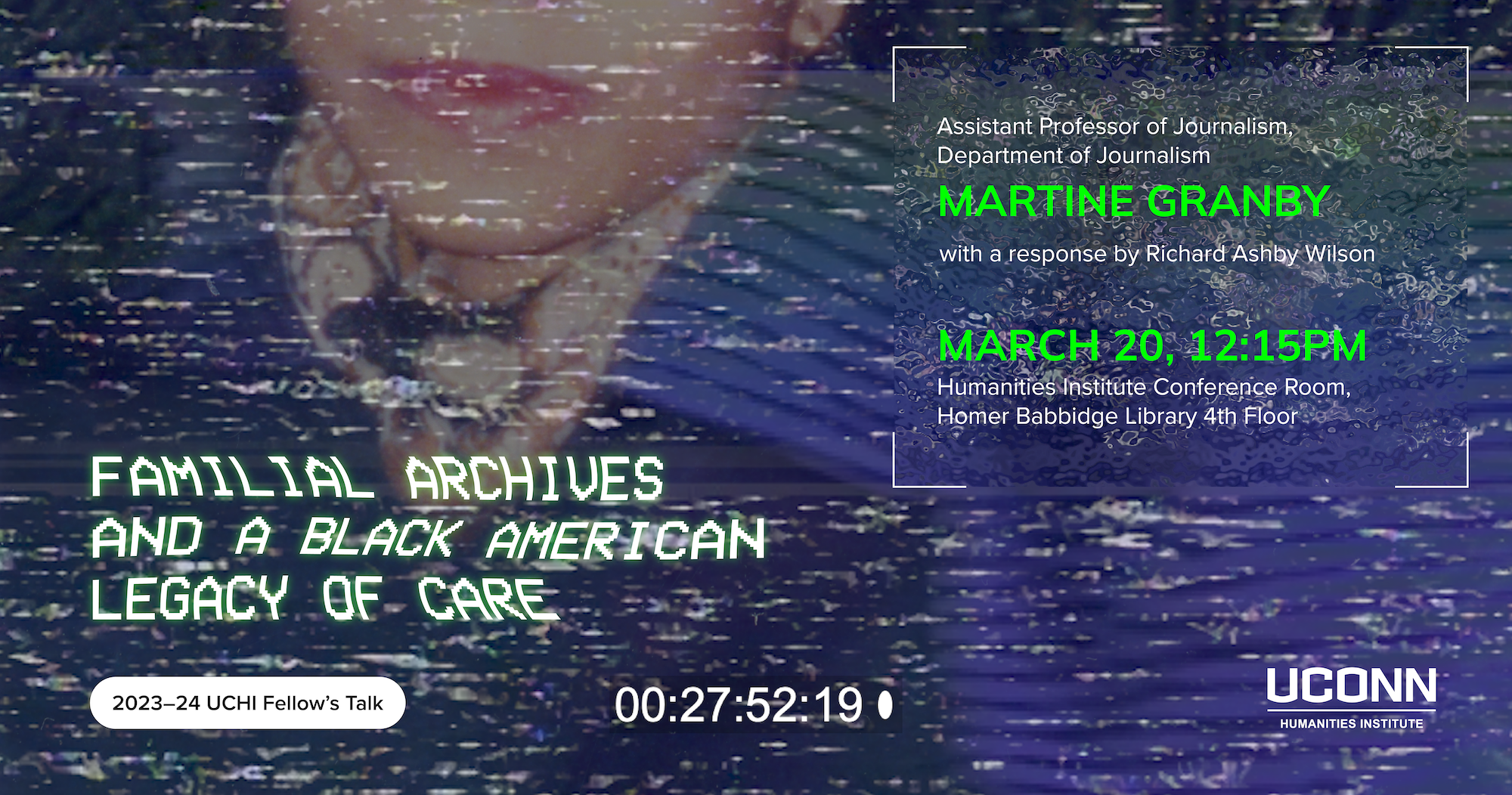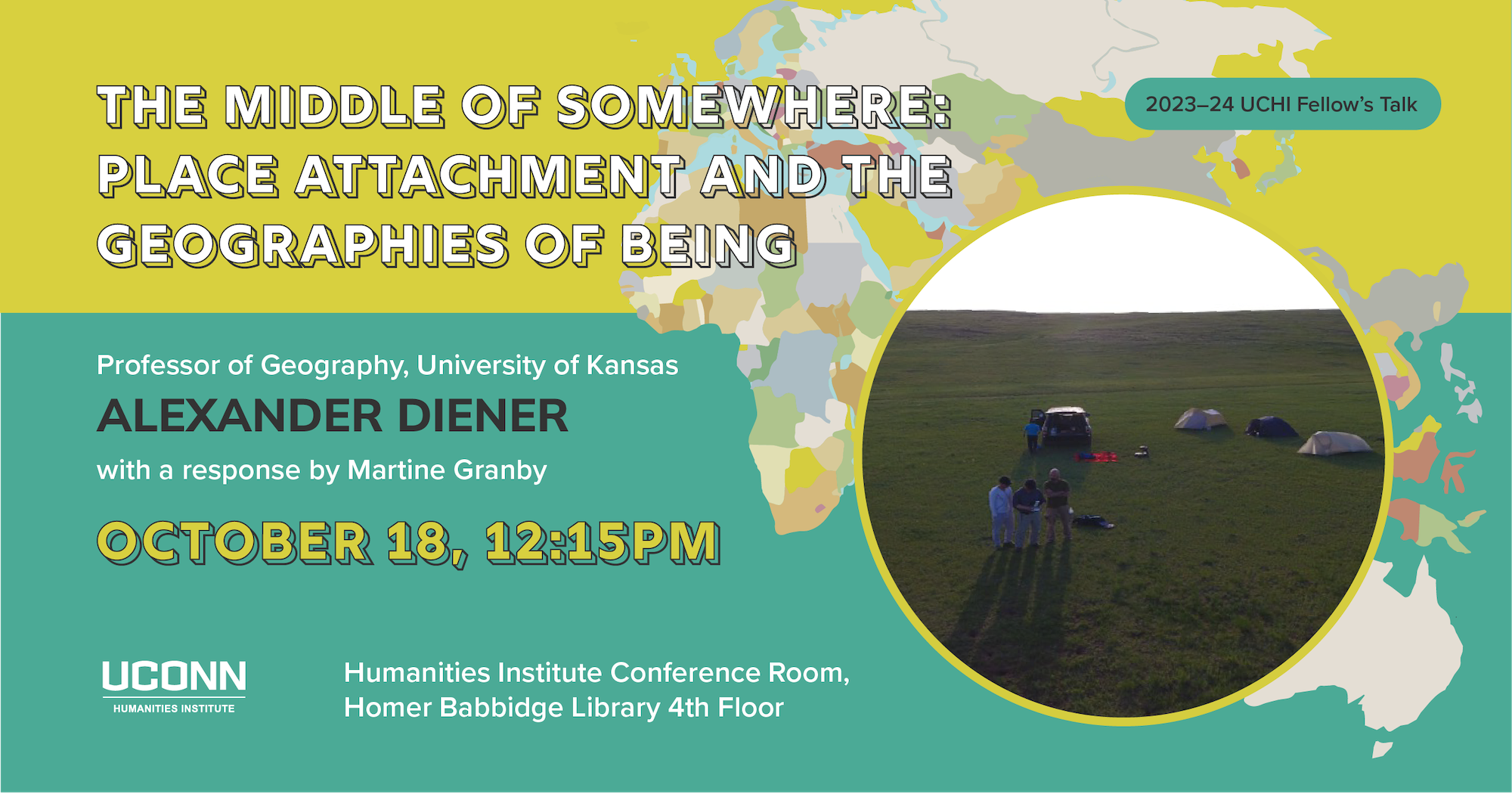Familial Archives and a Black American Legacy of Care
Martine Granby (Assistant Professor, Journalism, UConn)
with a response by Richard Ashby Wilson (Law, Anthropolgy, and Human Rights, UConn)
Wednesday March 20, 2024, 12:15pm, Humanities Institute Conference Room (HBL 4-209)
The event will also be livestreamed with automated captioning.
Spanning decades of familial memories, TEN SECONDS OF SUGAR is a personal essay documentary film chronicling a legacy of caretaking, motherhood, and silence of Black women’s mental health. Reimagining the past as a form of trauma recovery, employing an essayistic approach illustrating the historical relationships between Black American women and the American health system.
SECONDS is a portrait disrupting generational divisions, seeking care, what it means to overcome structural inequalities, and what we pass down. Guided by my narrative voice, captured mainly by an analog tape recorder, the film presents a series of conversations between three generations of women: myself, my mother, and my maternal grandmother. The camera’s presence is a catalyst, paving the way for us to make space to speak openly and without judgment.
Through this talk, I’ll screen excerpts from work-in-progress scenes that render my family’s lineage of caretaking professions, nurses, mental health practitioners, and funeral directors as a form of care reformation and the accompanying research.
Martine Granby is a nonfiction filmmaker and Assistant Professor of Journalism at the University of Connecticut, focusing on documentary filmmaking with a joint appointment in the Africana Studies Institute and an affiliate of UConn’s Women’s Gender and Sexuality Studies Program. She produces films that weave between documentary, experimental non-fiction, hybrid, and essay forms. Her creative research focuses on interrogations of and material experimentation with family and collective moving image archives, ethical considerations of found footage usage, and discourses around mental health in BIPOC communities.
Dr. Richard Ashby Wilson is Board of Trustees Professor of Law and Anthropology and Gladstein Chair of Human Rights. He is a scholar of transitional justice and his recent scholarship has focused on hate speech and incitement in international and U.S. law. His books include The Politics of Truth and Reconciliation in South Africa, Writing History in International Criminal Trials, and Incitement on Trial. He is a member of the Hate Crimes Advisory Council of Connecticut and he is writing a book about the challenges in reporting, investigating, and prosecuting bias-motivated crimes in the United States.
Access note
If you require accommodation to attend this event, please contact us at uchi@uconn.edu or by phone (860) 486-9057. We can request ASL interpretation, computer-assisted real time transcription, and other accommodations offered by the Center for Students with Disabilities.



